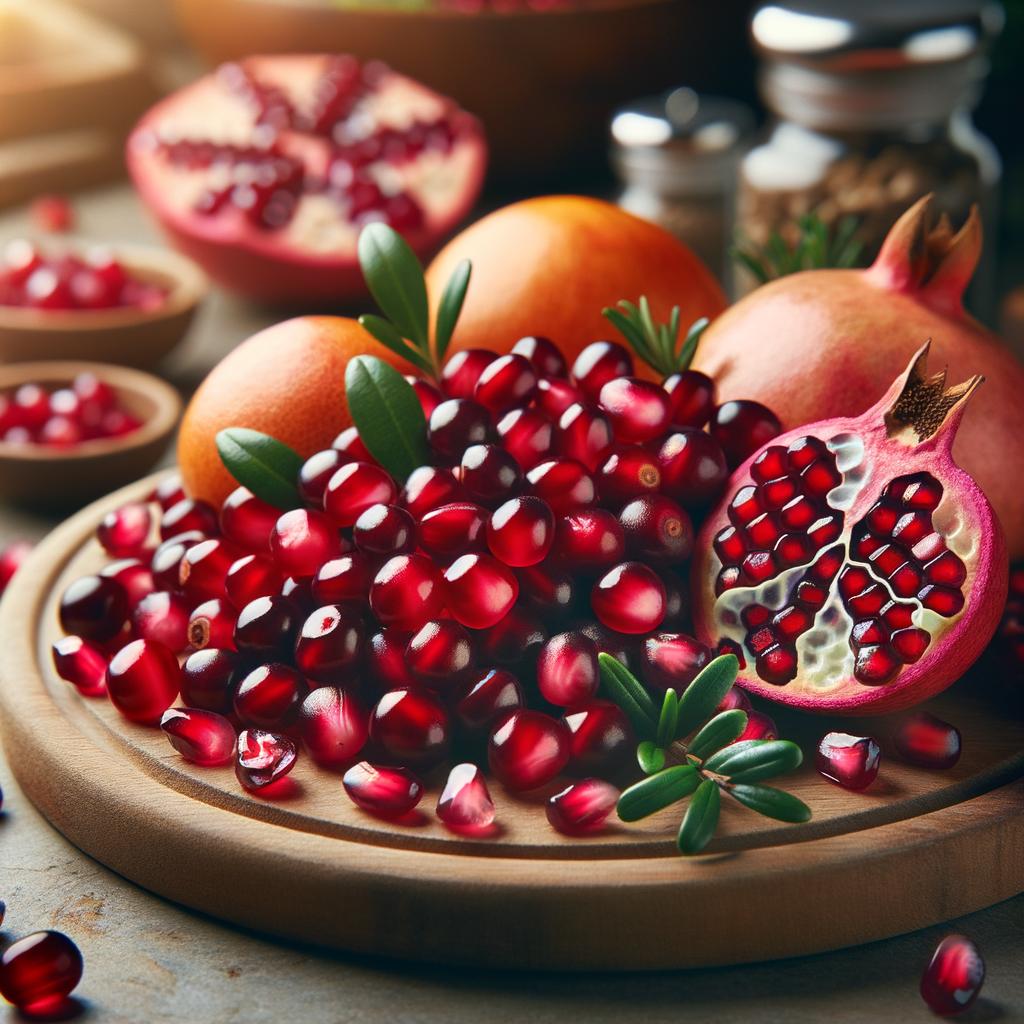Fresh Cranberries and Pomegranate Seeds

Description
Fresh Cranberries: These vibrant, ruby-red berries are a sight to behold. Their exterior is firm, glossy, and smooth to the touch, while the interior is juicy and tart. Cranberries have a distinctive, sharp flavor profile that's a harmonious blend of sweet and sour, with the latter often taking center stage. Their unique 'pop' when bitten into sets them apart from other berries.
Pomegranate Seeds: Also known as arils, pomegranate seeds are tiny, jewel-like droplets encased in a hard, crimson shell. Each seed is a delightful burst of sweet, slightly tart juice that envelops a small, crunchy kernel. Their exotic flavor and the fascinating contrast between the juicy exterior and crunchy interior distinguish them from other fruits.
Primary Uses
Fresh Cranberries: Cranberries are a versatile ingredient, commonly used in a variety of dishes. They are a staple in traditional American Thanksgiving meals, often cooked down into a tangy sauce. They also lend their tart flavor to baked goods like muffins, pies, and breads. Beyond their culinary uses, cranberries have been used medicinally, particularly in preventing urinary tract infections.
Pomegranate Seeds: These seeds are a delightful addition to salads, desserts, and even main dishes. They are a key component in Middle Eastern cuisine, often sprinkled over hummus or mixed into tabbouleh. Pomegranate juice is used in Ayurveda for its medicinal properties, believed to be beneficial for heart health.
History
Fresh Cranberries: Native to North America, cranberries have a rich history. Native Americans used them for food, medicine, and as a symbol of peace. The pilgrims learned about cranberries from the natives, and the berry has been a part of American cuisine ever since. The tradition of 'cranberry bogs' and the romantic notion of harvesting them in the cool autumn air add to their allure.
Pomegranate Seeds: With a history dating back to ancient times, pomegranates are steeped in mythology and symbolism. They are considered a symbol of prosperity and abundance in many cultures. Greek mythology tells the story of Persephone and the pomegranate seeds, which led to the creation of the seasons.
Nutritional Information
Fresh Cranberries: Cranberries are a powerhouse of nutrients. They are rich in Vitamin C, fiber, and antioxidants, and low in calories. Their high antioxidant content contributes to heart health and may help prevent certain types of cancer.
Pomegranate Seeds: Pomegranate seeds are a good source of dietary fiber, vitamins C and K, and several B vitamins. They are rich in antioxidants, particularly punicalagins, which are believed to have anti-inflammatory effects. When compared to cranberries, pomegranates have a slightly higher sugar content, but they also offer a broader range of nutrients.

